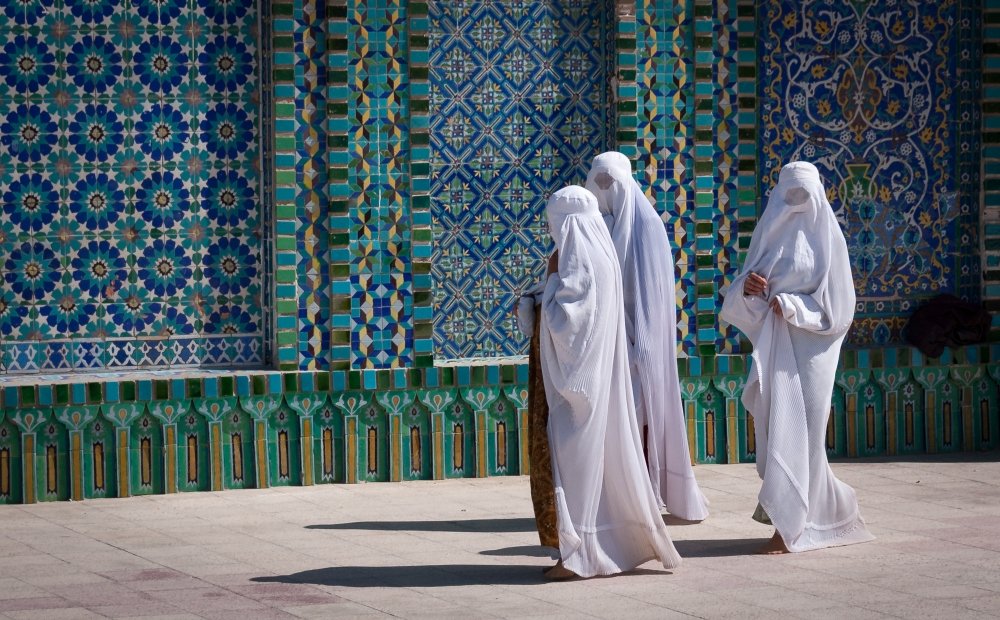Opium Nation: Child Brides, Drug Lords, and One Woman's Journey Through Afghanistan

On January 10, the Middle East Program, Asia Program, and Council of Women World Leaders of the Woodrow Wilson Center hosted a book discussion of Opium Nation: Child Brides, Drug Lords, and One Woman’s Journey Through Afghanistan with Nawa. Haleh Esfandiari, Director of the Middle East Program at the Wilson Center, moderated the event.
Nawa opened the talk by describing her own background, focusing on her childhood in Afghanistan and how things changed after the Soviet invasion in 1979. She recalled a more open society prior to the war that placed much less emphasis on the gender and ethnic disparities that plague Afghanistan today. Nawa explained the sense of fear that took over after the coup that overthrew Afghan President Mohammed Daoud and later under the rule of the Taliban. She claimed that women behaved in a “schizophrenic manner,” disobeying Taliban rules in private whilst fearing the possible repercussions.
Nawa elaborated on the drug industry in Afghanistan and women’s involvement in it. She described her visit to a town on the Iranian border which was deluged with opium, crime brought on by smugglers, and “opium brides” that have been traded to traffickers in exchange for the forgiveness of opium debt. She explained that over time approximately two-thirds of opium was refined into heroin. Since the process involves cooking, women were able to participate. This entrenched many women and their families into the industry as opium farmers, refiners, or smugglers. Afghanistan derives 60% of its GDP from opium, and although the industry is worth $4 billion inside the country, it is worth an estimated $65 billion outside its borders, Nawa said. Many international cartels are implicit in the opium trade originating in Afghanistan, and benefactors of the industry are generally not those living in Afghanistan. Nawa explained that Afghanistan developed its own addicted population from the industry, with an estimated 10-25% consisting of women and children. She emphasized that although the opium trade has benefited some with a chance to earn a living, it has damaged the lives of many within Afghanistan.
In the book, Nawa focused on the story of an opium bride named Darya, a twelve-year old girl whose father had sold her to a smuggler to pay off his debts. After Darya was taken away by her new husband, her mother implored Nawa to help find her. Nawa used Darya’s story to emphasize the role of women and the family in Afghan society, pointing out that the family unit is the source of the strength and resiliency which exists there. Thus, Nawa believes it is imperative to focus on development programs that strengthen families and communities rather than focusing on the rights of individual women, acknowledging that her view has been criticized. She pointed out that American involvement in Afghanistan must inevitably come to an end, and argued that it is necessary to establish a doctrine of human rights, reestablish democratic institutions, and increase aid efforts if civil war is to be avoided.
By Joanna Abdallah, Middle East Program
Speaker
Hosted By

Middle East Program
The Wilson Center’s Middle East Program serves as a crucial resource for the policymaking community and beyond, providing analyses and research that helps inform US foreign policymaking, stimulates public debate, and expands knowledge about issues in the wider Middle East and North Africa (MENA) region. Read more


Indo-Pacific Program
The Indo-Pacific Program promotes policy debate and intellectual discussions on US interests in the Asia-Pacific as well as political, economic, security, and social issues relating to the world’s most populous and economically dynamic region. Read more


